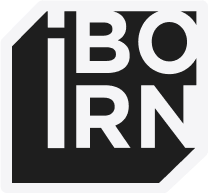Drupal is one of the best CMSs (Content Management System) thanks to its versatility, stability, and the level of security it provides. It is an open source solution without limits, and it is not surprising that many companies opt to use it to create and manage their websites. Do you want to know more about this CMS and see if it is the most appropriate option for your business? Well, keep reading, because here we are going to tell you everything about Drupal. In addition to this article, you can check out the Drupal wiki page, or some other independent source. And then if you’re interested you can try out the Drupal demo version and see if you would like to use this CMS.
What is Drupal?
The name Drupal comes from the Dutch word ‘drupel’ which means ‘drop’. Now that you know this, perhaps the brand’s logo makes more sense. Drupal allows you to manage complex environments, it provides better organization of every aspect, from users to permission, through roles and more.
The most remarkable thing about Drupal is its great power at a development level, but it also stands out when it comes to code quality.
What sort of organizations use Drupal as a web solution?
Drupal is mostly used for building and maintaining educational and entertainment portals, as well as websites of media organizations, governmental organizations, and international associations and sport clubs. Here are some of the examples:
- Oxford University
- Tesla
- United Nations
- The Grammys
- Arsenal FC
- Sevilla FC
- New York State
- Nokia
- NASA
- Emmy Awards
- Australian Government
These examples of web development created with Drupal speak for themselves. The level of security and privacy protection are remarkable, and the customizable design and functionality are additional perks of this renowned CMS.
If you are considering the possibility of choosing Drupal to build your website, we can help you decide if it is the best option for you. But first, we'll tell you how it works and what are its main advantages.

How does Drupal work?
This web solution is, in fact, a base infrastructure to which we users can add different modules in order to get desired results. First things first, let’s see how it beings.
Drupal includes several themes that you can use to create a website from scratch. And this is quite straightforward and simple. Bear in mind that when we’re talking about a template that usually refers to a rigid design that you’d have to adapt to. If, on the other hand, you would like a customizable design that adapts to your needs and provides the desired functionalities, then it would be most appropriate to use one of the modules that Drupal offers.
Thanks to its flexibility you can adapt the customizable modules to suit your requirements. That way, you can transmit the values of your company and your corporate image combined, in accordance with your communications strategy. We aren’t going to get into specific versions, like Drupal 7, or Drupal 8.

Advantages of Drupal
Free software: Drupal is an open-source software in continuous development so it constantly grows and gets improved thanks to a community that thrives on professionalism and the principles of collaboration.
Usability: integrates a WYSIWYG (What You See Is What You Get) editor which allows for more straightforward editing, giving you an immediate insight into the expected final result.
Security: Drupal features a layered security structure which makes it one of the most secure CMSs.
Flexibility: offers the possibility of creating multiple structures due to its high degree of customization.
Responsive: all Drupal themes are responsive and include mobile first design.
Very active development community: with more than 38,000 active developers, this community constantly works to maintain the system’s stability. The community’s slogan is “Come for the code. Stay for the community” and there’s not much to add here, the slogan really speaks for itself.
Scalability: it has the ability to react and adapt and handle increasing amounts of data and tasks without a drop in quality.
Web optimization: includes tools which allow you to manage keywords, reports, Google Analytics, etc.
Multi-language: something very useful if your website is available in multiple geo-locations. This way, you will enable clients to use the language they know best.

